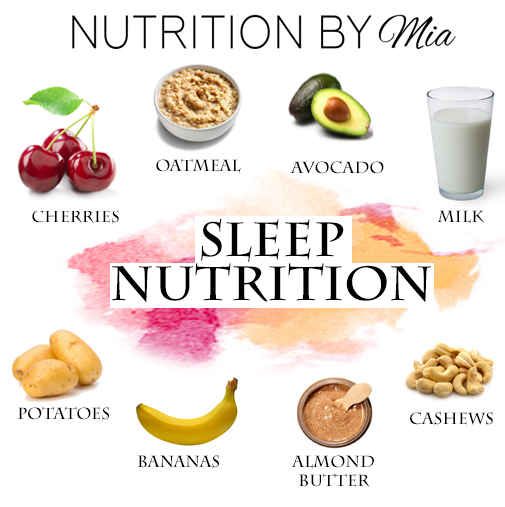 The importance of sleep often goes discounted and while the link may not seem apparent, nutrition and sleep go hand in hand. Not getting enough sleep can lead to the following: overeating, obesity, increased sugar cravings, and increased body fat around your mid-section and vital organs, to name a few.
The importance of sleep often goes discounted and while the link may not seem apparent, nutrition and sleep go hand in hand. Not getting enough sleep can lead to the following: overeating, obesity, increased sugar cravings, and increased body fat around your mid-section and vital organs, to name a few.
The importance of sleep
Getting adequate sleep is associated with maintainence of normal metabolic, endocrine and cardiovascular function. Getting adequate zzz’s will: reduce your hunger, provide you with more energy, improve your thermoregulation and increase your energy expenditure which all can help you maintain a healthy weight. A normal sleep/wake cycle is associated with normal glucose utilization, normal leptin/ghrelin balance (appetite-regulating hormones) and normal body weight maintenance. The recommended number of hours associated with the lowest risk of metabolic abnormalities is 7-9 hours per night.
Sleep and obesity
The majority of epidemiological studies have found an association between sleep duration and obesity as well as a relationship between sleep and weight gain. There are many possible mechanisms by which sleep causes obesity. Sleep deprivation leads to increased hunger, increased opportunity to eat, altered thermoregulation, increased fatigue and thus increased caloric intake and reduced energy expenditure. Studies show the sleep restriction intimately affects appetite-regulating hormones including higher ghrelin levels associated with increased hunger and appetite for calorically-dense foods with high carbohydrate content.
Which foods promote a restful night’s sleep?
Certain foods contain nutritive components that will promote a more restful night’s sleep.
Milk and other dairy products: calcium plays a suggested role in melatonin synthesis, or sleep-inducing hormone.
Cashews, avocado, almond butter: these are rich in magnesium, a mineral involved in relaxing muscles and helping to combat insomnia.
Potatoes, bananas: these are both rich in potassium, linked to improved sleep quality.
Cherries: Shown to reduce insomnia potentially due to its natural melatonin content.
Quinoa, oatmeal: rich in magnesiun and are low glycemic carbohydrates which are shown to promote a restful nights sleep.












